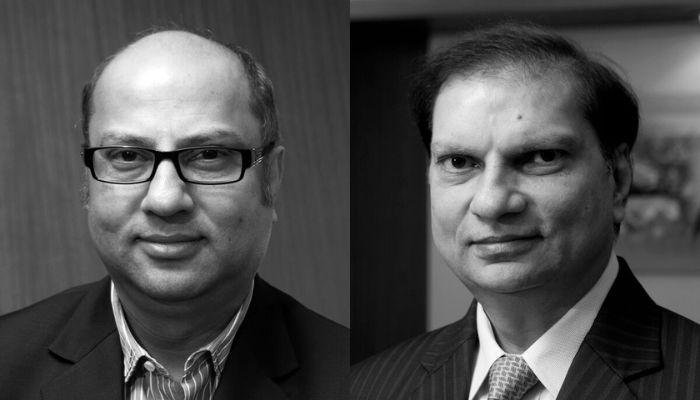India’s Supreme Court has approved a $570 million settlement offer from billionaire brothers Nitin and Chetan Sandesara, marking a dramatic turn in one of the country’s largest alleged bank fraud cases.
The deal allows the owners of Nigeria’s Sterling Oil to resolve liabilities pegged at $1.6 billion if they pay roughly a third of the amount India says they owe.
The ruling effectively creates a legal pathway for the brothers, long branded fugitives by Indian authorities, to exit years of criminal investigation.
It also signals a shift in India’s approach, where high-profile economic offenders may opt for negotiated settlements rather than prolonged trials.
Legal experts say the ruling could open the door for other economic offenders to pursue similar deals with the government. Debopriyo Moulik, a Supreme Court lawyer, warned that the move “could open the way for economic offenders to strike similar settlements, leaving lenders struggling to recover their entire dues.”
He added that “this is very similar to the approach adopted in foreign countries where fines are an alternative to facing trial,” framing the decision as a major policy shift. For Indian banks already battling bad loans, the development raises fresh questions about recovery prospects.
The Brothers’ Rise in Nigeria’s Oil Industry
While Indian investigators built cases across multiple jurisdictions, the Sandesara brothers were expanding their footprint in Nigeria’s energy sector. Their flagship companies, Sterling Oil Exploration & Production Co. and Sterling Global Oil Resources Ltd, now count among Nigeria’s largest independent producers.
According to a 2023 Bloomberg report, the companies pump roughly 50,000 barrels of crude oil a day under contracts with the Nigerian National Petroleum Company. Their operational base shifted to Lagos after they pivoted away from India in the mid-2010s, accelerating their integration into Nigeria’s oil industry.
Expansion Strategy and Local Influence
The Sandesaras built a vertically integrated business that grew from two modest Niger Delta licences into a major crude-exporting operation. They hired the former head of Nigeria’s petroleum regulator to oversee their expansion and secured large state contracts that strengthened their influence.
Their companies also became major contributors to public revenue. In 2019, the Nigerian government reported that taxes and royalties from Sandesara-linked entities accounted for 2 percent of national income, underscoring the brothers’ economic weight in the country.
Operational Resilience in a Volatile Region
Nigeria’s chronic pipeline vandalism and oil theft have hindered several producers, but the Sandesaras avoided similar disruptions. According to Indian Times reporting, the group relied on barges to transport crude to a floating offshore storage vessel, bypassing the vulnerable pipeline network.
This strategy ensured steady exports even during periods of militant attacks and infrastructure sabotage, giving Sterling Oil a competitive edge. Their resilience further entrenched their reputation as reliable operators in an industry defined by volatility.
Nigeria’s Strategic Alignment With the Sandesaras
Nigeria has increasingly tied its future oil ambitions to companies connected to the brothers. Officials announced in 2023 the discovery of up to 1 billion barrels of crude in the country’s northeast, a multi-billion-dollar exploration push partly supported by contractors linked to the Sandesaras.
These partnerships highlight how geopolitical and commercial interests have shielded the brothers from India’s extradition efforts. Indian officials have repeatedly expressed frustration at Nigeria’s cooperation gap.
India’s Fraud Allegations and Failed Extradition Bid
Indian agencies accuse the brothers of orchestrating a massive financial fraud through their now-collapsed Sterling Group. Investigators allege the company used fabricated documents, inflated valuations, and shell structures to divert loan proceeds into offshore ventures, including Nigerian oil operations.
The Central Bureau of Investigation says the group owed more than 140 billion rupees ($1.7 billion) to state-owned banks such as State Bank of India, Union Bank of India, and Bank of Baroda. A 2019 charge sheet also claimed that loan funds were routed abroad in violation of financial regulations.
Global Legal Pressure and UK Court Rulings
Indian banks pursued the group internationally and secured two UK High Court rulings in 2018 and 2021. Those rulings ordered companies linked to the Sandesaras to repay nearly $60 million after defaulting on obligations tied to Sterling Oil.
Despite these victories, Indian authorities still failed to secure extradition. In 2018, Nigerian officials refused India’s request, saying the allegations “appeared to be political in nature,” according to documents published by the Organised Crime and Corruption Reporting Project.
Brothers Deny Wrongdoing as India Closes In
The Sandesaras maintain they are victims of political persecution rather than perpetrators of economic crimes. Their stance hardened as they applied for Nigerian citizenship, according to CBI filings reviewed by Indian media.
Now, with the Supreme Court’s settlement approval, the brothers are closer than ever to resolving the long-running dispute. The decision could reshape how India handles cross-border financial crime and influence future enforcement strategies.

